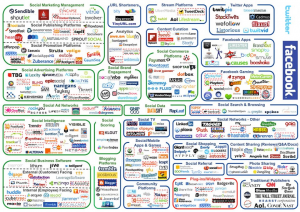Imagine you own a restaurant, and you’re expanding it to another country. Will you keep the same American flavors and just expect the new market to like them? Of course not! You’ll do your due diligence and research to ensure you offer your new patrons a product they’ll actually enjoy.
The same goes for expanding any company into an international market. People trust those who are similar to them, so having local and personal connections will quickly build rapport with your new market. Of course, you shouldn’t sacrifice your business’s overall branding and core competencies — but infusing that distinctly local flavor into your company will undoubtedly pay dividends.
Here’s how to strike that delicate balance:
1. Clearly define your strategy — and check the boxes. Before expanding to any new country, you and your team should have clearly defined strategies and tactics for staying true to your branding while adapting to local cultures, languages, and business customs. To be successful, you should understand the local community and culture so you can answer the following questions:
- Do you know most of your potential clients personally?
- Do you know their wants and needs?
- Do you know who their current suppliers are and the nature of their relationship?
- Who are the influencers in the local industry? (There is always a group of key influencers who are the “primus inter pares” within the local industry.)
- Which governmental agencies, industry associations, and regulatory bodies will impact your potential business?
- Do you know the decision makers there? What’s their agenda?
- Do you and your staff feel comfortable doing business in the new region?
- Do you know the local customs, business etiquette, etc.?
- Are you able to operate as a chameleon, or are you seen as an interloper?
2. Never underestimate the power of relationship building. In America, we’re used to business moving at breakneck speeds. Yes, there’s a focus on forming relationships, but the whole process is accelerated. However, this is not the case in many other countries, where relationship building is a long-term commitment.
Local connections put a “face” or personality on a big global company. People like to do business with other people, not soulless corporations, so taking the time to find the right partners and team will serve you well.
3. Don’t be arrogant. You stand by your product, and that’s great! But to be truly successful, you need a degree of humility. Don’t assume that just because certain markets are crazy about your product, others will be. Do your research. Don’t assume that your marketing approach in America will work everywhere. (It won’t.) Find out the local norms for pricing, payment, shipping, packaging, etc.
And definitely don’t assume that business will be done in English. “It is the height of ignorance to expect other people to learn our language to buy from us,” said John E. Cleek, program director at the Bloch School of Business Administration at the University of Missouri-Kansas City. This is “le mot juste,” so employ a local team on the ground to help handle language and cultural barrier issues. This will help your target market view your business as more approachable, trustworthy, and legitimate.
Entering ‘World 3.0’
It’s important to respect the individual cultures and economic conditions you’re entering. With the world becoming more and more connected every year, it’s important to understand that we now live in “World 3.0,” according to economist Pankaj Ghemawat.
Individual countries are increasingly developing their own economic conditions and growing at their own paces. Ghemawat argues for “rooted cosmopolitanism” — i.e., respecting and understanding each country’s strengths — in our business leaders.
For example, my company expanded to the United Arab Emirates a number of years ago, and by the time we had our business plan approved, my team and I had gotten to know many local suppliers and partners, identified a local team, and met with our largest clients.
Local ties and knowledge have accelerated our success, ensuring we’re seen as a truly global company, rather than an American company that just happens to do business abroad.
By committing to understanding your global market and doing business on a personal level, you’ll also find the balance of being a global company with local flavor.
Business & Finance Articles on Business 2 Community(93)





